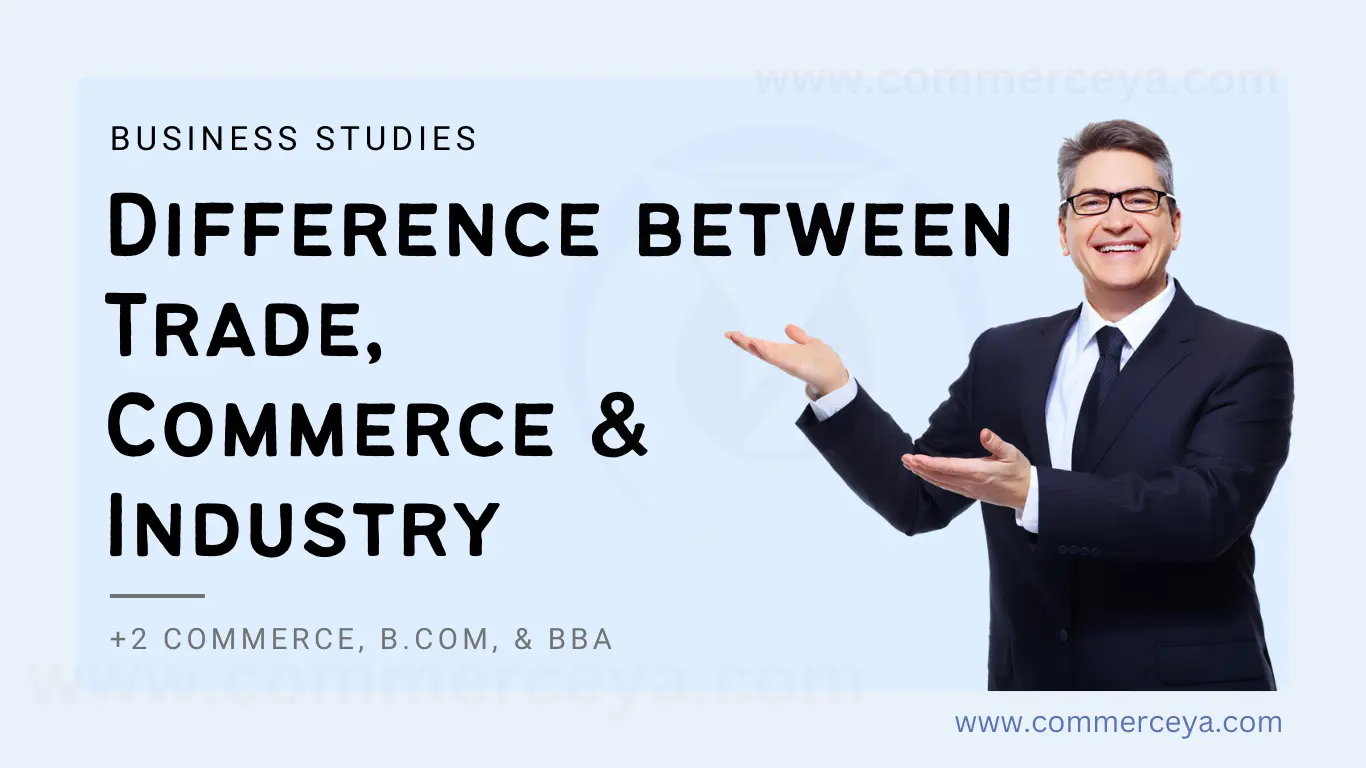What is Industry?
The production of goods and services that meet consumer requirements and wants is referred to as an industry. It involves the design, production, or fabrication of both material and immaterial items, including furniture, software, entertainment, and vehicles. Industries are frequently categorized based on the goods they produce or their manufacturing procedures. The automotive industry, the textile industry, the information technology industry, and the food processing industry are a few examples of industries.
What is Commerce?
Contrarily, commerce describes the processes involved in purchasing and offering services. It encompasses all of the actions that make it easier for producers to exchange goods and services with consumers. Transportation, warehousing, insurance, marketing, and advertising are just a few of the components that make up commerce. The main objective of commerce is to establish a market where products and services can be traded and deals can be made. Wholesale and retail trade are additional categories for commerce.
What is Trade?
The exchange of commodities and services between diverse parties, such as people, companies, or nations, is referred to as trade. It involves the domestic and international purchase and sale of products and services. Different types of trade exist, including barter trading, multilateral trade, and bilateral trade. Numerous other operations, including negotiations, transportation, documentation, and funding, are involved in the trade.
Differences between Trade, Commerce, and Industry
| Basis | Trade | Commerce | Industry |
|---|---|---|---|
| 1. Meaning | It is related to the purchase and sale of goods. | It deals with all those activities that deal with the transfer of goods from producers to consumers. | All those activities that deal with the conversion of raw materials into finished goods are covered in industry. |
| 2. Requirement of Capital | The requirements of capital are more in trade as compared to commerce. | Commerce requires less capital. | Capital needs are high for industry because it requires the purchase of huge raw materials and investments in goods in process. |
| 3. Deals with | Trade deals only with the purchase and sale of commodities. | Commerce includes trading and other servicing activities. | Industry deals with those activities that relate to primary, manufacturing, processing, etc. |
| 4. Risk involvement | It involves a greater amount of risk of a fall in prices or changes in demand borne by the trade. | The risk involved in commerce is comparatively less. | Industry involves a greater amount of risk as compared to any other activity. |
| 5. Dependency | Trade is necessary to sell goods and services. | Commerce is not possible without trade. | Industry and commerce are dependent on each other. |




